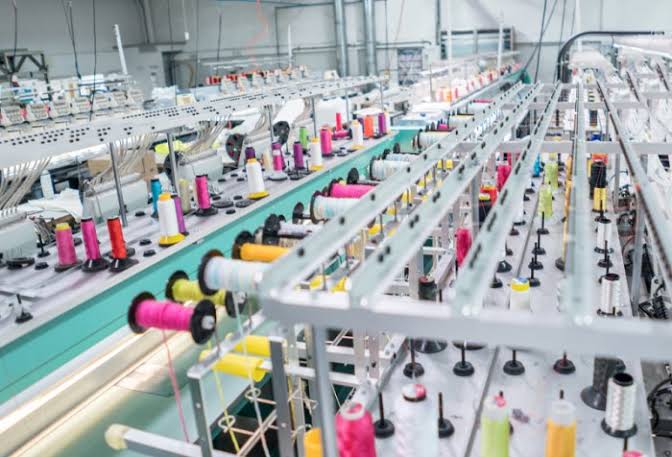The worldwide textile and apparel business is currently confronted with a number of environmental and social concerns while manufacturing, which should be addressed through the creation of a variety of solutions.
The demand for fashion products that are sustainable and fair trade certified is high because customers are developing a greater awareness for the environment and ethical behaviours.
In many parts of the world, rural revitalisation can be accomplished through the use of fair trade practises.
Traditional approaches to welfare have been unsuccessful in addressing the labour issues that are associated with international trade. However, the fair-trade movement has done an incredible job of bridging the gap between the interest of Northern consumers in ethical purchasing and the efforts of Southern producers to gain fair returns.
This kind of idea is incredibly significant for improving living standards in rural communities and satisfying the desires of fashion consumers who want to buy things that are both ethical and environmental friendly.
Every manufacturer observes WFTO manufacturing guidelines :
1.Helping struggling producers
Small-scale manufacturing reduces poverty through trade. Every producer helps weavers and artisans with raw materials and fair markets. Each manufacturer:
1. supply information, materials, and designs.
2. Teaching product design, quality, and production.
3. promoting designs
4. Buying fairly
Working groups are encouraged. Raw materials and finance help them build community-based factories (for weaving or creating by-products from material waste). Every manufacturer’s inexpensive pricing create jobs and raise living standards.

2.Accountability
This fosters business transparency. Every manufacturer saves transaction records. Tracking skills, welfare, and third-party payments. Updated in-house and remote staff registries.
The annual budget funds training and welfare. Auditing a WFTO-compliant yearly report. Every manufacturer updates WFTO to maintain openness.
3.Ethics in manufacturing
Every manufacturer contacts remote workers. Trust, respect, and communication build operational partnerships. Community-made things sell.
Staff is retrained to restore confidence if quality or production issues arise. Fair-trade aids the poor. Workers are committed to fair dealing beyond the employer’s commercial side.
Every manufacturer gives weavers instruction, funding, raw materials, and machinery. The company provides social services to big manufacturing facilities.
Workers who must drive far are given bicycles, and on-site daycare lets parents keep their kids close. Women can see their daycare-enrolled child at lunch.
4.Egalitarianism
Fairly paid plant workers can earn bonuses for extra units. Decentralized employees get raw supplies and a low per-item pricing. Cost breakdowns help manufacturers pay workers fairly.
Every manufacturer invests in worker growth, training, and welfare.
5.No slave labour
National employment and wage law. Illegal: home-based child labour. Employees aren’t required to achieve 50% efficiency. Overachievers are rewarded. Decentralized or home-based workers have reduced expectations and a flexible work environment, but they must do a specific amount in a certain time. Fair-trade practises promote ethics and individual situations.

6.Free association, nondiscrimination, gender parity, women’s economic development
No manufacturer discriminates on gender, disability, religion, or race. 95% of workers are women. Male/female management 50/50. In manufacturing and home-based centres, disabled people work.
They set realistic targets. Women leaders are promoted. Most weavers and craftsmen are businesses or craft centre administrators.
The corporation allows unionisation but has an internal grievance procedure. Employee- management groups discuss concerns. Discussions fix issues. Each group’s management reps send discussion minutes.
They make board recommendations. This helped the organisation resolve staff difficulties and generate growth ideas.
7.Workplace
Every manufacturer provides a safe and healthy workplace. Safety programmes educate personnel. Industrial and decentralised labour centres are audited often.
8.Capacity-building
Every manufacturer trains home-based weavers and management. 6 months of training for new hires. Each company area’s management staff receives assignment-based training to understand its working manner and skills/knowledge.
Even home-based workers receive company-sponsored training. Progress is evaluated every 3 months and an action plan is created.
9.Transparency
Every firm promotes fair trade via programmes, labels, and fairs. Management has given fair-trade presentations.
10.Environmentalism
Every manufacturer took sustainable steps to improve its environmental performance, and the handloom company utilises minimal energy and materials.
Germany dyes India’s raw cotton. Treated dye water is returned to farms, and dye sludge is used in cement. Production is “zero- waste”.
Eliminating waste manufacturers avoids landfills and incineration and encourages 100% reuse. Reusing discarded fabrics helps achieve ‘zero material waste’ Sarees and textiles are handwoven. sarees are waste-less. Handloom fabrics make clothes, housewares, accessories, and soft toys.
Read More: https://tdznkwjt9mxt6p1p8657.cleaver.live/genz-demand-for-sustainable-brand-attract-investor/













